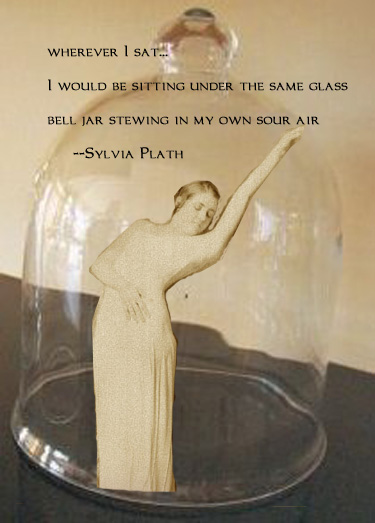 |
 |
 |
 |
 |
 |
 |
 |
 |
 |
 |
 |
 |
 |
|
|
The Post War Woman: Under the Bell Jar |
|
|
|
Following the war, women necessarily resigned to the home, as men returned form overseas to reclaim their "rightful" positions in industry and commerce. The return to domesticity left women stripped of the freedom and independence, ultimately creating great disonance about what the ideal roles for women entailed. The memory of what they once participated in for a short while altered their self-perceptions for years to come. The extreme adjustment required to assimilate citizens into the "old routine" resulted in extreme fear, anxiety and materialism. While the nation experienced significant financial security, the social situation began to erupt. |
|
 |
|
|
|
|
|
 |
|
|
|
|
 |
|
|
|
|
|
|
"To the person in The Bell Jar, black and stopped as a dead baby, the world itself is a bad dream" --- Sylvia Plath |
|
|
|
|
|
 |
|
|
|
She rose to His Requirement - dropt The Playthings of Her Life To take the honorable Work Of Women, and of Wife - from Emily Dickinson For Further ViewingFrom the Bell Jar A Message from Alcott Not So Great Expectations An Eclectic View of Women |
|



